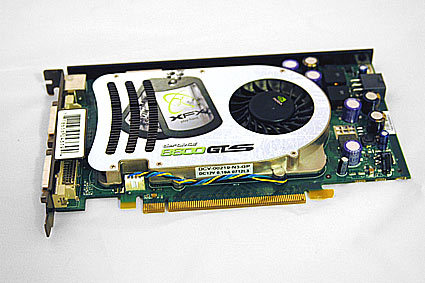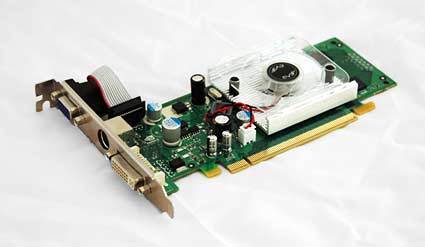AVIVO HD vs. Purevideo HD Part 3: Midrange and Low-end Card Performance
Meet The Contestants
In our last Avivo HD vs. Purevideo HD review, we included the high-end Geforce 8800 GTX in our testing, and it became apparent that this card did not offer the same video acceleration as its lower-end counterparts. Because both ATI and Nvidia have kept universal video decoding acceleration out of their high end cards - rationalizing that the 2900 and 8800 series would be paired with a high-end CPU capable of handling the video decoding demands of HD video - we'll be skipping them and concentrating on their mid-range and low-end siblings.
| Video Card 1:Geforce 8600 GTS | |
|---|---|
| Codename: | G84 |
| Process: | 80 nm |
| Universal Shaders: | 32 |
| Texture Units: | 16 |
| ROPs: | 8 |
| Memory Bus: | 128-bit |
| Core Speed MHz: | 540 |
| Memory Speed MHz: | 700 (1400 effective) |
| DirectX / Shader Model | DX 10 / SM 4.0 |
The best DirectX 10 GeForce gaming card under the 8800 series, the 8600 GTS sports full H.264 decode acceleration and partial VC-1 decode acceleration.
| Video Card 2:Geforce 8400 GS | |
|---|---|
| Codename: | G84 |
| Process: | 80 nm |
| Universal Shaders: | 16 |
| Texture Units: | 8 |
| ROPs: | 8 |
| Memory Bus: | 64-bit |
| Core Speed MHz: | 450 |
| Memory Speed MHz: | 400 (800 effective) |
| DirectX / Shader Model | DX 10 / SM 4.0 |
Nvidia's newest and cheapest discrete DirectX 10 card, the 8400 GS has half the memory bus, universal shaders, and texture units of the 8600 GTS. The 8400 GS isn't capable of serious gaming, however it is advertised to accelerate the HD video decoding process like its bigger brother, the 8600 GTS.
Get Tom's Hardware's best news and in-depth reviews, straight to your inbox.
Don Woligroski was a former senior hardware editor for Tom's Hardware. He has covered a wide range of PC hardware topics, including CPUs, GPUs, system building, and emerging technologies.

